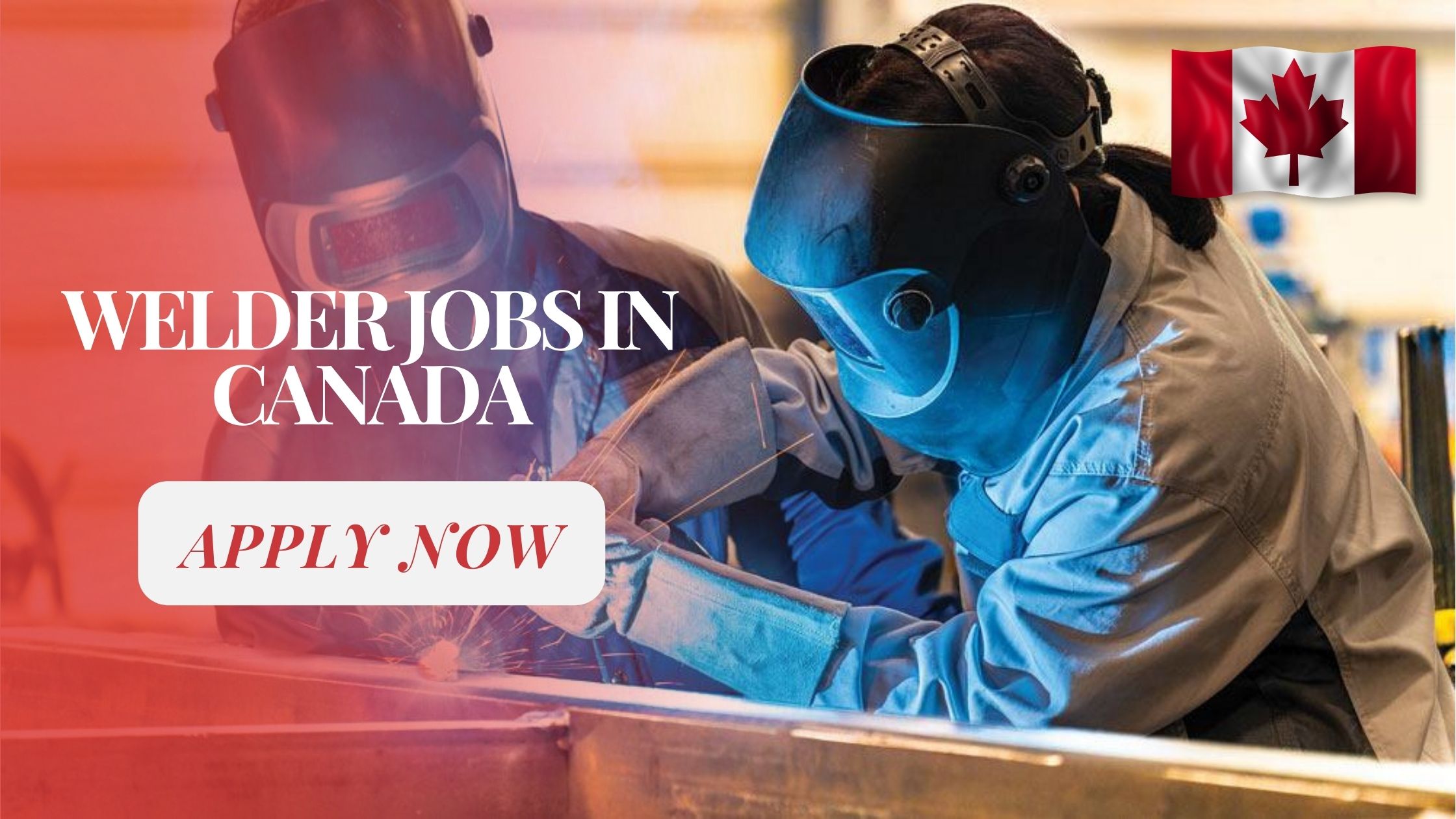Welder jobs in Canada offer tremendous opportunities for skilled professionals looking to advance their careers in a thriving and dynamic industry. With Canada’s robust infrastructure projects, the demand for qualified welders is on the rise. This comprehensive guide aims to provide you with all the necessary information and insider tips to successfully apply for welder jobs in Canada. Whether you are a seasoned professional or just starting out, this guide will help you navigate the process and increase your chances of securing your dream job.
Understanding the Canadian Job Market for Welders
Current Demand for Welders in Canada
The construction and manufacturing sectors in Canada are booming, creating a high demand for skilled welders. According to recent labor market reports, Canada needs thousands of welders to meet the current and future demand. This is due to several factors, including infrastructure development, industrial expansion, and the aging workforce.
READ MORE: Breaking Ground: How to Successfully Apply for Miner Jobs in Canada
Key Industries Employing Welders
Welders in Canada can find opportunities across various industries, including:
- Construction: Welding is crucial in building residential, commercial, and industrial structures.
- Manufacturing: From automotive to aerospace, manufacturing industries rely on welders to assemble and repair components.
- Oil and Gas: Welding is essential in pipeline construction and maintenance.
- Shipbuilding: Canadian shipyards require welders for building and repairing vessels.
- Mining: The mining sector utilizes welders for equipment fabrication and repair.
Geographic Hotspots for Welding Jobs
Certain provinces and cities in Canada have a higher demand for welders. Alberta, Ontario, and British Columbia are known for their robust construction and manufacturing sectors. Cities like Toronto, Calgary, and Vancouver often have numerous job openings for welders due to ongoing infrastructure projects and industrial activities.
Qualifications and Skills Required
Educational Background
While formal education is not always mandatory, having a high school diploma or equivalent is beneficial. Vocational training in welding, which can be obtained through technical schools or community colleges, significantly enhances your employability. These programs typically cover various welding techniques, safety procedures, and blueprint reading.
Certifications and Licensing
In Canada, certain provinces require welders to be certified. The Canadian Welding Bureau (CWB) offers certification programs that are widely recognized by employers. Obtaining certification from CWB can improve your job prospects and earning potential. Additionally, possessing a Red Seal endorsement, which signifies interprovincial standardization of skills, is highly advantageous.
Technical Skills
Employers look for candidates proficient in different welding techniques, such as MIG, TIG, and arc welding. Knowledge of metallurgy, the ability to read blueprints, and understanding welding symbols are crucial technical skills. Familiarity with welding equipment maintenance and repair also adds value to your skillset.
Soft Skills
Successful welders possess a combination of technical and soft skills. Attention to detail, problem-solving abilities, and effective communication are essential. Physical stamina and the ability to work in various environments, including confined spaces and heights, are also important.
READ MORE: The Ultimate Checklist for Applying to Retail Salesperson Positions in Canada
Crafting a Standout Resume and Cover Letter
Resume Tips
Your resume should highlight your skills, certifications, and relevant experience. Start with a strong objective statement that clearly defines your career goals. List your work experience in reverse chronological order, emphasizing your achievements and responsibilities in previous roles. Include details of your education and certifications, ensuring to mention any specialized training you have received.
Cover Letter Tips
A compelling cover letter should complement your resume by providing more context to your experience and skills. Personalize your cover letter for each job application, addressing the hiring manager by name if possible. Highlight your most relevant experiences and explain how your skills make you a perfect fit for the position. Demonstrating knowledge of the company and expressing enthusiasm for the role can leave a positive impression.
Job Search Strategies
Utilizing Online Job Portals
Several online platforms are dedicated to job postings in the welding industry. Websites such as Indeed, Workopolis, and Monster regularly feature welding job listings. Create a profile on these platforms and set up job alerts to stay updated on new opportunities.
Networking and Professional Associations
Networking is a powerful tool in the job search process. Joining professional associations like the Canadian Welding Association (CWA) can provide access to job boards, industry events, and networking opportunities. Connecting with industry professionals on platforms like LinkedIn can also open doors to job leads and referrals.
Attending Job Fairs and Industry Events
Job fairs and industry events are excellent opportunities to meet potential employers and learn about job openings. These events often feature booths from various companies looking to hire welders. Preparing an elevator pitch and having copies of your resume handy can make a strong impression on recruiters.
READ MORE: In-Demand Careers: Applying for Homecare Support Provider Jobs in Canada
Preparing for Interviews
Common Interview Questions
Prepare for interviews by practicing answers to common questions such as:
- “What welding techniques are you proficient in?”
- “Can you describe a challenging project you worked on and how you overcame the obstacles?”
- “How do you ensure safety and quality in your work?”
Showcasing Your Skills
During the interview, be prepared to discuss your technical skills and provide examples of your work. Some employers may ask for a practical demonstration of your welding abilities, so be ready to showcase your expertise.
Questions to Ask Employers
Asking insightful questions can demonstrate your interest in the role and help you gauge if the company is a good fit for you. Consider asking about the types of projects you will work on, opportunities for training and advancement, and the company’s safety protocols.
READ MORE: How to Land a High-Paying Industrial Butcher Job in Canada
Understanding Employment Contracts and Work Conditions
Types of Employment Contracts
Employment contracts for welders in Canada can vary. You may encounter:
- Permanent full-time positions with benefits and job security.
- Temporary or contract roles which may offer higher pay but less stability.
- Apprenticeships which combine on-the-job training with classroom instruction.
Work Environment and Conditions
Welders work in diverse environments, from outdoor construction sites to indoor manufacturing facilities. The job may require working in varying weather conditions, confined spaces, or at heights. Understanding the physical demands and safety protocols of the job is crucial.
Salary Expectations
Wages for welders in Canada vary by region, industry, and experience level. On average, welders can expect to earn between $20 to $40 per hour. Specialized welders, such as underwater welders or those working in high-risk environments, can command higher salaries.
READ MORE: Step-by-Step Process to Apply for Electrician Jobs in Canada
Conclusion
Applying for welder jobs in Canada involves understanding the job market, acquiring the necessary qualifications, and effectively presenting your skills and experience. By following the tips and insights provided in this guide, you can enhance your job search strategy and increase your chances of securing a rewarding position in this dynamic industry.






